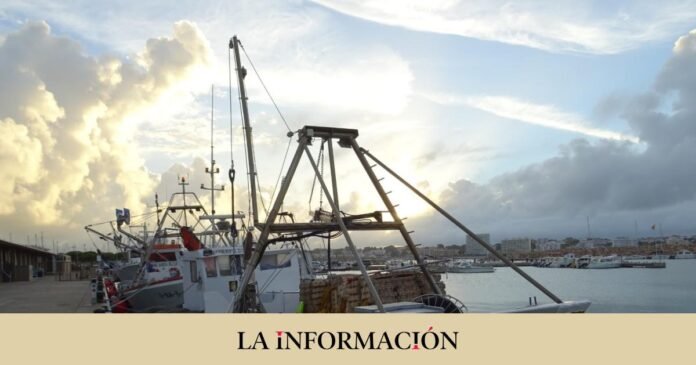The proximity of the polls sharpens the competition between the main parties for each vote and their proposals are full of ‘winks’ towards certain economic sectors and the small one is no exception. All this, just a few days before the Moroccan fishing ground is closed. The European commissioner of the branch, Virginijus Sinkevicius, acknowledged that it is “difficult” to achieve an extension and that everything resulted from a ruling by the Court of Justice of the European Union (CJEU). The minister of the branch Luis Planas, who is also head of the PSOE list for Córdoba, announced on Monday that his department was “technically finalizing the order” that will regulate aid to those affected by the end of the fishing agreement with Morocco. Specifically, he will focus his attention on the between 10 and 12 vessels of the Galician trawling fleet that fish in Moroccan waters and, above all, the 47 vessels in the Andalusian inshore (these already number only about 500 crew members). All of the above, in the middle of the electoral campaign and with the popular and Sumar winking at the sector in their programs.
The popular ones propose to reduce the VAT on fish and preserves “temporarily”, although from the fishing sector they want it to be permanent. An important part of their proposals are included within the chapter dedicated to the ‘Agrifood System’, aspiring to a “more competitive and sustainable” fishing sector, for which they advocate supporting generational change, research and a “National Blue Economy Strategy”. In addition to optimizing the resources from the new European Maritime Fisheries and Aquaculture Fund (FEMPA), which until 2027 will mean receiving 1,120.44 million euros (we are the first recipient country). They defend the introduction of “regulatory changes” to make environmental protection and socioeconomic activities compatible. Specifically, they say, “human activities on the coast will be regulated to guarantee sustainable use of its resources.”
The PSOE, apart from managing immediate problems such as the closure of the Moroccan fishing ground and the review of the ban on trawling in 87 fishing areas of several European countries, also includes in its electoral program for 23-J a specific section on this activity with proposals such as support for the decarbonization of the sector -which will be discussed at an informal meeting of the Fisheries ministers next week- a “fair and equitable distribution of quotas and fishing opportunities”-, as well as the development of the Sustainable Fishing Law approved this year, continue the fight against illegal fishing and promote “an improvement in society’s perception of aquaculture products, as a complementary and not a substitute offer.”
Spain will receive 1,120.44 million euros from the European Maritime Fisheries and Aquaculture Fund (FEMPA) until 2027
What the fishing sector asks for
Both the employers’ association Cepesca (Spanish Fisheries Confederation) and the National Federation of Fishermen’s Associations (FNCP) have sent their suspicions to the political parties. Both organizations, along with the rest of the value chain (canning industry, retailers…) agree to request a reduction in VAT on fish and shellfish from 10 to 4% with the aim of promoting the consumption of this type of product. Important nuance: They want it to be permanent, not temporary. They also demand that the weight of the current General Secretary of Fisheries be raised to a State Secretary, and even, to a hypothetical Ministry of the Sea.
They also agree, with nuances, that the promotion of offshore wind should not be done at the expense of traditional fishing grounds. From Cepesca urges “to carry out scientific studies to analyze the impact of wind farms on fishing and marine ecosystems.” From Brotherhoods they add to the above “a moratorium on the implementation of offshore wind in the planned areas until better scientific information is obtained.”
Other issues that register the proposals of both organizations are the generational change and the expediting of the contracts of foreign crew members. Brotherhoods also show a special sensitivity towards the role of women, demanding “improvements” in the boats to house mixed crews and more reconciliation measures.
For their part, those of Yolanda Díaz (of Galician origin and closely linked to the port of Ferrol) devote ample space to this economic activity in their electoral program. From Sumar they opted to revalue this sector and declare it “strategic and essential for food security and sovereignty” (something that was already contemplated in the royal decree law that led to the first confinement by Covid). In addition, they are committed to measures that tackle the main challenges of the sector, such as facilitating generational change (“adapted Vocational Training”), greater recognition of Fishermen’s Associations within the European Union so that they can benefit from community aid; as well as “differentiated treatment for artisanal fishing”, less bureaucracy (“single window) and avoiding clashes between offshore wind power and the fleet for the use of maritime space.
In the Coalition They Also Propose The Approval Of Norms Such As A Royal Decree Of First Sale And, Even Directly The Fishing Section But The Following Entity Of ‘Healthy Eating’, The New Brand of the left of the psoe want to introduce “Tax benefits or economic aid to healthy and sustainable foods” to promote their consumption. Despite which, fishing is not cleanly cited.

